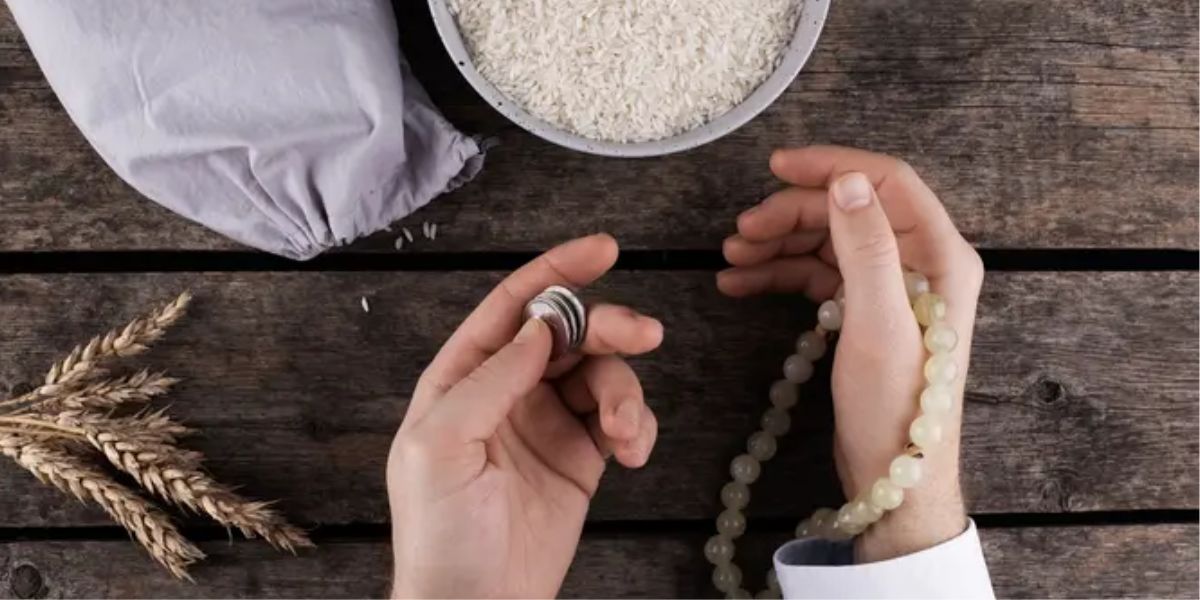Kapanlagi.com - As Idulfitri approaches, Muslims around the world are reminded to fulfill zakat fitrah as a form of self-purification after observing the Ramadan fast. Zakat fitrah is not just an obligation, but also plays a crucial role in helping the poor celebrate this day of victory with joy. Through zakat, they receive much-needed support to survive amid existing economic challenges.
However, amidst the hustle and bustle leading up to the holiday, questions often arise in people's minds: Which is better, to give zakat fitrah directly to the mustahiq (recipient) or through amil (zakat manager)? Some people choose to distribute directly so that the recipients can receive more, while others prefer to trust official zakat institutions, which are deemed more capable of distributing it evenly and in accordance with sharia principles.
So, how should we distribute zakat fitrah according to Islamic teachings? Let’s take a look at the complete explanation summarized from KapanLagi.com, on Sunday (2/3).
1. Obligation of Zakat Fitrah and Its Distribution Goals
Zakat fitrah is a sacred obligation that must be fulfilled by every Muslim, without exception, from children to adults, as long as they have enough food for themselves and their families on the blessed day, Idulfitri. The importance of fulfilling this zakat before the Idulfitri prayer is not only to ensure that its benefits are felt by the recipients but also as a form of purification of the soul from mistakes during the month of Ramadan.
The Prophet Muhammad (peace be upon him) said:
"The Prophet Muhammad (peace be upon him) made zakat fitrah obligatory to purify those who fast from vain deeds and foul words and as food for the poor." (HR. Abu Dawud & Ibn Majah) referenced from uinjkt.ac.id.
For this reason, zakat fitrah must reach the hands of those entitled to receive it on time, whether distributed personally or through zakat management institutions.
2. Directly Distributing Zakat Fitrah to Mustahiq: Advantages and Challenges
Some advantages of distributing zakat directly:
- More personal and targeted, especially if the muzaki (zakat giver) knows the mustahiq well.
- Can provide a larger amount to specific individuals, compared to when zakat is distributed evenly by an organization.
- Fosters a direct sense of empathy, as the muzaki can see the recipients' conditions firsthand.
However, there are also challenges in direct distribution, such as:
- Lack of equitable distribution, as it is only given to people who are known.
- Potential for feelings of discomfort or injustice, especially if there are many mustahiq in one area but only some receive assistance.
- Risk of misdirection, as not everyone who appears poor truly meets the criteria for zakat recipients according to Islamic law.
3. Channeling Zakat Fitrah through Amil: Benefits and Mechanism
One smart option for channeling zakat fitrah is through official zakat amil, such as BAZNAS or trusted zakat management institutions. In this way, the distribution of funds becomes more equitable, as it will be distributed to mustahiq according to Islamic provisions.
In addition, the use of amil also reduces the potential for errors in distribution, considering they already have data on eligible recipients. Equally important, this method preserves the feelings of mustahiq, especially for those who may feel embarrassed if they have to receive assistance directly from individuals.
In Islamic history, the Prophet Muhammad SAW did not distribute zakat fitrah directly, but entrusted it to zakat amil to collect and distribute it to the eight categories of zakat recipients (asnaf). This shows that the management of zakat through institutions has been a recommended practice since the time of the Prophet.
4. Scholars' Opinions: Which is More Preferred?
Opinions that favor going through amil
- This approach is closer to Islamic history, where the Prophet Muhammad (SAW) always appointed amil to manage zakat.
- Zakat managed by institutions can be allocated for productive programs, not just consumptive aid.
- It helps realize social justice as zakat is distributed more broadly to those in need.
Opinions that prefer direct distribution
- Direct distribution allows recipients to receive greater benefits compared to if it were distributed evenly by an institution.
- Muzaki can ensure that the recipients are truly in need.
- If there are family members or neighbors who are in dire need, giving zakat directly can be more beneficial.
Gus Baha, in one of his lectures, mentioned that giving zakat directly to eligible relatives can be more advantageous for them compared to if it is given to an institution. However, he also emphasized that there is nothing wrong with distributing zakat through amil, as both are equally valid according to Islam.
“For example, I have one million in cash. Coincidentally, the one in need is my nephew or someone I am not obligated to support. I know that if I give one million to the mosque, it will be shared among the whole village and my nephew will only get 25 thousand, which cannot buy rice. But if I give it myself, he could get 300 thousand or even one million,” said Gus Baha, in a lecture about zakat in general.
5. Conclusion: Choose the Most Appropriate and Suitable Option
In choosing the method of distributing zakat fitrah, we are faced with two options, each having its own merits, whether directly or through an amil. There is no one method that is absolutely more correct, as both are in accordance with Islamic law.
If you want to provide greater benefits, especially to relatives, direct distribution may be the best choice. However, to ensure a wider and more equitable distribution, using an amil is highly recommended.
For those who are concerned that their zakat may not reach the right recipients, a trusted zakat institution like BAZNAS can be a more reliable solution. Most importantly, zakat fitrah must be distributed to those entitled before the Idulfitri prayer, so that its benefits can be felt on time in accordance with the teachings of the Prophet Muhammad SAW.
6. FAQ: Questions About Zakat Fitrah
1. Does zakat fitrah have to be distributed through an amil?
No, it is not obligatory, but it is recommended as it is closer to the way of the Prophet Muhammad (SAW).
2. If given directly, is it still valid?
Yes, as long as it is given to the eligible recipients in accordance with Islamic law.
3. What is the deadline for paying zakat fitrah?
Before the Idulfitri prayer, but it is better to be fulfilled a few days before Eid so that it can be immediately utilized by the recipients.
4. Can zakat fitrah be given in the form of money?
The majority of scholars recommend it to be in the form of staple food, but some allow it to be in the form of money if it is more beneficial for the recipients.
5. Who is entitled to receive zakat fitrah?
Eight categories of eligible recipients, especially the poor and needy, as mentioned in the Quran.
(kpl/mni)
Disclaimer: This translation from Bahasa Indonesia to English has been generated by Artificial Intelligence.












